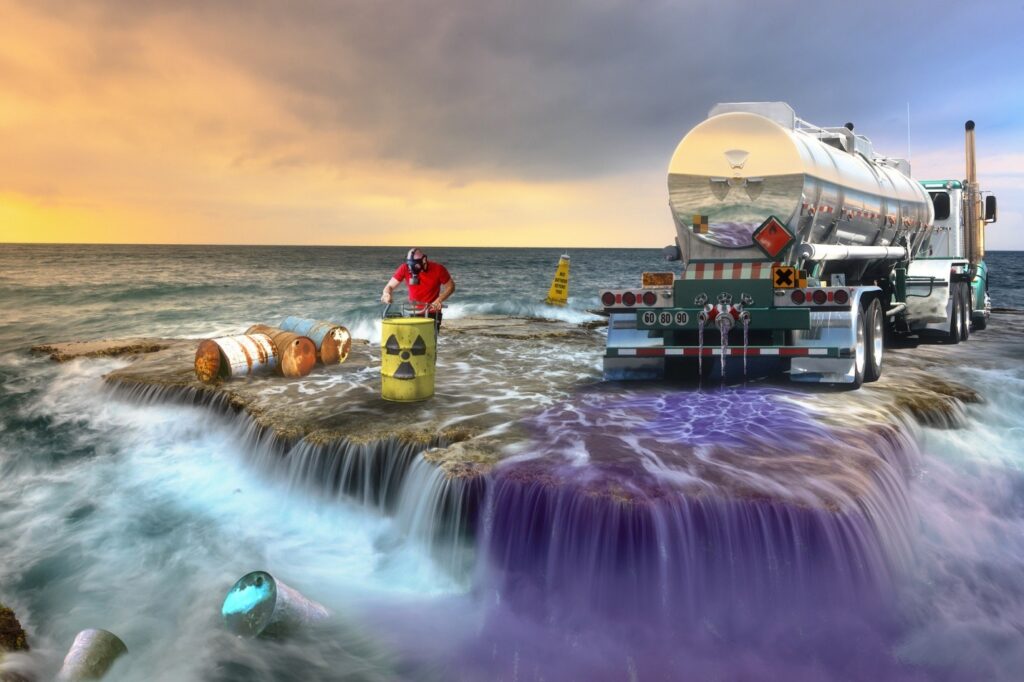The Best Strategy To Use For Reclaim Waste
The Best Strategy To Use For Reclaim Waste
Blog Article
What Does Reclaim Waste Mean?
Table of ContentsFascination About Reclaim WasteFacts About Reclaim Waste UncoveredSee This Report about Reclaim WasteThe 25-Second Trick For Reclaim WasteThe 10-Second Trick For Reclaim Waste
Domestic sewer waste refers to the waste and products from a domestic septic storage tank. The proper management and disposal of residential sewer waste need fluid waste to be transferred to a sewer therapy plant where the proper approaches and tools are used to cleanse and dispose of waste.
Commercial waste typically includes possible dangers, such as flammable products or a combination of fluid and solid waste items, and calls for a more advanced and detailed disposal procedure. The disposal of business waste generally includes the purification of waste prior to transport to ensure safe and correct disposal. Hazardous waste is developed from by-products and runoff of commercial processes and production.
This sort of waste can not use the same sewage monitoring transportation or procedures as septic or commercial fluids. The industrial waste monitoring process needs the evaluation and screening of fluid waste prior to it goes through the disposal procedure (liquid waste disposal melbourne). Drainage waste is the liquid waste that originates from overflow and excess stormwater in very inhabited locations or cities
Runoff waste can trigger contamination and flooding otherwise dealt with appropriately. Find out more about sewage system cleaning and waste monitoring. Making certain correct waste monitoring can protect against calamities and decrease environmental damage. Both individuals in domestic settings and experts in business or production sectors can gain from understanding the procedures and policies of liquid waste administration.
Things about Reclaim Waste
Contact PROS Providers today to learn more about our waste administration and disposal services and the proper means to take care of the fluid waste you create.
(https://www.imdb.com/user/ur191403836/?ref_=nv_usr_prof_2)This supposed 'wastewater' is not only a crucial source but, after treatment, will certainly be released to our land, rivers or the ocean. Utilized water from bathrooms, showers, baths, kitchen sinks, laundries and industrial processes is understood as wastewater.

water utilized to cool machinery or clean plant and tools). Stormwater, a type of wastewater, is overflow that flows from agricultural and urban areas such as roofs, parks, gardens, roadways, paths and seamless gutters into stormwater drains pipes, after rain. Stormwater streams untreated straight to neighborhood creeks or rivers, eventually reaching the ocean.
Getting My Reclaim Waste To Work
In Queensland, many wastewater is dealt with at sewage treatment plants. Wastewater is transported from domestic or industrial websites through a system of drains and pump terminals, called sewerage reticulation, to a sewage treatment plant. City governments build, preserve and operate most sewer therapy plants. Operators are certified under the Environmental Protection Act 1994 to release cured wastewater at an appropriate environmental criterion into rivers.
The Division of Natural Resources encourages regional governments regarding managing, operating and maintaining sewerage systems and treatment plants. In unsewered areas, city governments might need find here homeowners to install specific or house sewer therapy systems to treat domestic wastewater from commodes, kitchen areas, shower rooms and washings. The Division of Natural Resources authorizes using household systems when they are proven to be reliable.
The majority of stormwater obtains no therapy. In some brand-new subdivisions, treatment of some stormwater to get rid of clutter, sand and crushed rock has actually started using gross toxin catches. Wastewater treatment occurs in four phases: Eliminates solid matter. Bigger solids, such as plastics and other items wrongly released to sewage systems, are gotten rid of when wastewater is passed via screens.
Makes use of tiny living microorganisms understands as micro-organisms to damage down and get rid of remaining liquified wastes and great fragments. Micro-organisms and wastes are incorporated in the sludge.
What Does Reclaim Waste Do?
Nutrient removal is not readily available whatsoever sewer therapy plants because it needs pricey specialised devices. It is becoming more typical in Queensland. Clear fluid effluent produced after treatment might still consist of disease-causing micro-organisms. If this effluent is released into rivers such as rivers or the sea, the micro-organisms will eventually pass away out.

This usually means wastewater needs to be treated or contaminants eliminated before it can be released to waterways. The majority of wastewater streams into the sewerage system. Under the Act, city governments carry out approvals and licences for ecologically pertinent activities (Periods) entailing wastewater releases that might have a regional impact. The division provides authorizations and permits to ERAs involving wastewater releases that may have a local or statewide effect.
4 Easy Facts About Reclaim Waste Shown
Otherwise, examples are taken for research laboratory evaluation. Frequently many tests are needed to establish the degrees of each of the different toxins such as oils, heavy steels and pesticides in water. Tracking provides valid details concerning water top quality and can validate that licence conditions are being met. The info gotten via surveillance supplies the basis for making water quality choices.
Report this page